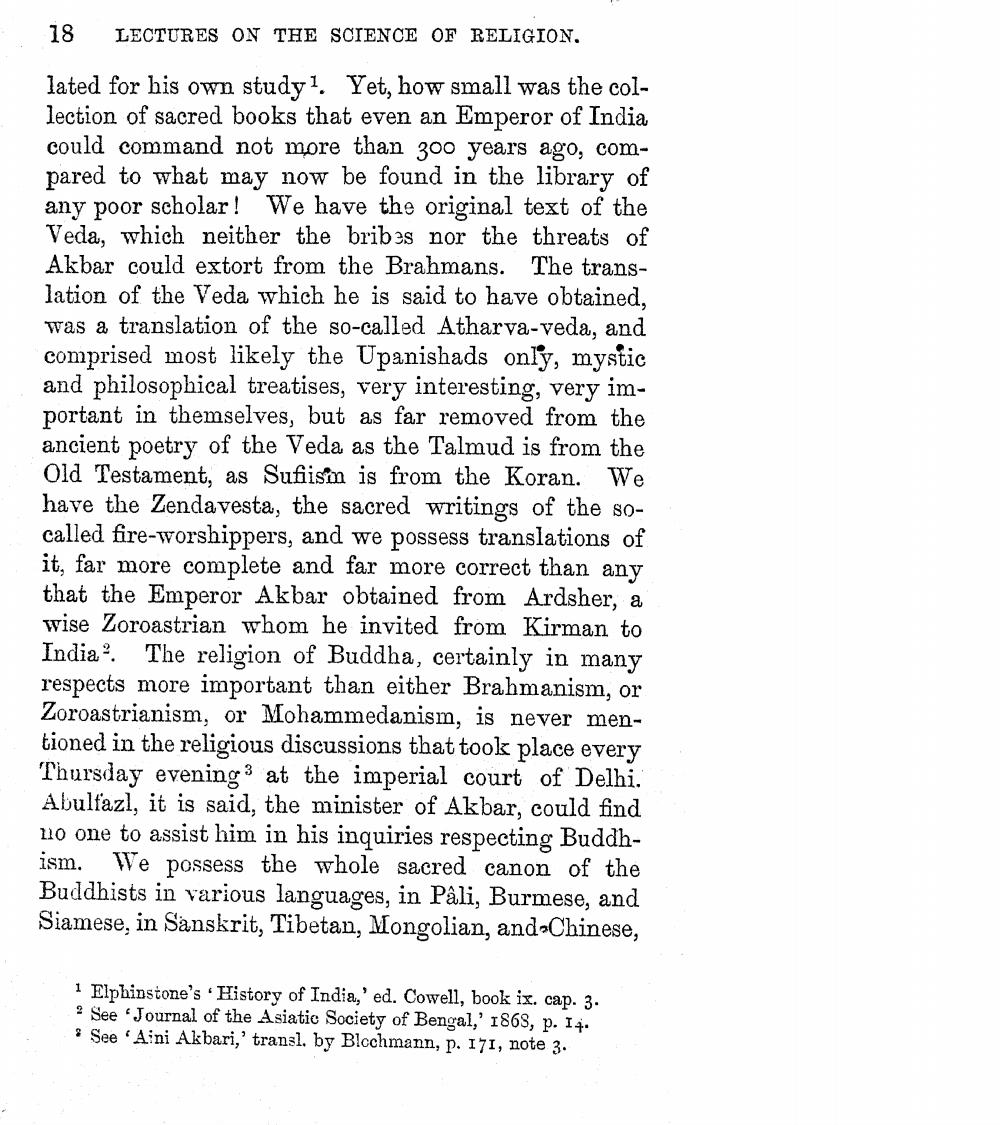________________
18 LECTURES ON THE SCIENCE OF RELIGION.
lated for his own study1. Yet, how small was the collection of sacred books that even an Emperor of India could command not more than 300 years ago, compared to what may now be found in the library of any poor scholar! We have the original text of the Veda, which neither the bribes nor the threats of Akbar could extort from the Brahmans. The translation of the Veda which he is said to have obtained, was a translation of the so-called Atharva-veda, and comprised most likely the Upanishads only, mystic and philosophical treatises, very interesting, very important in themselves, but as far removed from the ancient poetry of the Veda as the Talmud is from the Old Testament, as Sufiism is from the Koran. We have the Zendavesta, the sacred writings of the socalled fire-worshippers, and we possess translations of it, far more complete and far more correct than any that the Emperor Akbar obtained from Ardsher, a wise Zoroastrian whom he invited from Kirman to India. The religion of Buddha, certainly in many respects more important than either Brahmanism, or Zoroastrianism, or Mohammedanism, is never mentioned in the religious discussions that took place every Thursday evening at the imperial court of Delhi. Abulfazl, it is said, the minister of Akbar, could find no one to assist him in his inquiries respecting Buddhism. We possess the whole sacred canon of the Buddhists in various languages, in Pâli, Burmese, and Siamese, in Sanskrit, Tibetan, Mongolian, and Chinese,
1 Elphinstone's History of India,' ed. Cowell, book ix. cap. 3. 2 See Journal of the Asiatic Society of Bengal,' 1868, p. 14.
See 'Aini Akbari,' transl. by Blechmann, p. 171, note 3.




